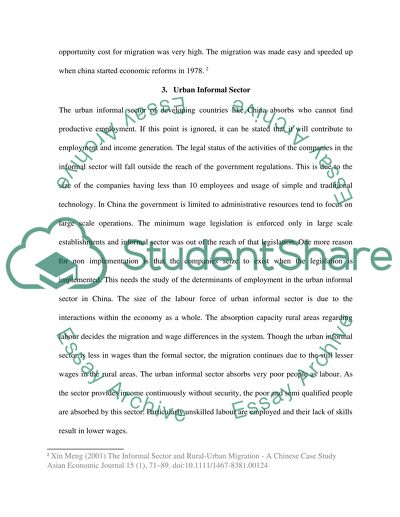Cite this document
(“Wage differences in Urban Informal Sector of China Essay”, n.d.)
Retrieved de https://studentshare.org/miscellaneous/1503215-wage-differences-in-urban-informal-sector-of-china
Retrieved de https://studentshare.org/miscellaneous/1503215-wage-differences-in-urban-informal-sector-of-china
(Wage Differences in Urban Informal Sector of China Essay)
https://studentshare.org/miscellaneous/1503215-wage-differences-in-urban-informal-sector-of-china.
https://studentshare.org/miscellaneous/1503215-wage-differences-in-urban-informal-sector-of-china.
“Wage Differences in Urban Informal Sector of China Essay”, n.d. https://studentshare.org/miscellaneous/1503215-wage-differences-in-urban-informal-sector-of-china.


